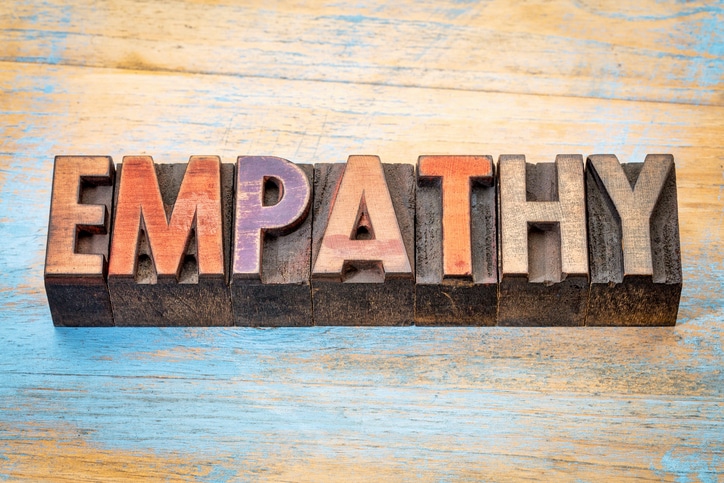This week we are joined by a veteran guest of the Healthcare Experience Matters Podcast, created by our Healthcare Experience Federation (HXF) partners, to discuss the different ways we can work to move past empathetic distress as healthcare workers.
We welcome back Kathleen Lynam, RN, MPA, for a very important and timely discussion on this pressing issue in the healthcare community that impacts society as a whole too.
Kathleen is an Executive Coach and Senior Advisor with HXF, along with a PRC Excellence Accelerator® coach. She brings decades of nursing leadership experience to the conversation. Today’s chat with Kathleen starts with reminder as to what empathy is in the first place.
As discussed, empathy is a two-part skill starting with identifying our perspectives or emotions, and secondly it is about acknowledging or demonstrating some understanding with concern for others. According to Kathleen:
- An empathic leader is a leader who demonstrates care, concern, and understanding for employees’ life circumstances.
- Empathy helps bond colleagues together and forms the foundation of a resilient and inclusive workplace. Although it is often underestimated as a business skill, recent research suggests that empathy is essential to success in the future of work.
- It is possible to cultivate and develop empathy.
- There are three aspects of empathy: cognitive, affective, and behavioral.
- Empathy is linked to many positive outcomes that teams can leverage to become more agile and innovative in times of crisis.
We also learn that empathy and compassion are not the same thing. Empathetic distress is the feeling we get when we lose ourselves in those who are suffering. It is when we become overwhelmed and distressed by the pain we see and experience in others.
People in the helping or healing profession are especially prone to merging their own identities with other people’s distress—but it can happen to anyone in any aspect of life. In the current era, people are constantly exposed to an abundance of suffering just by watching the news or scrolling through social media.
“It’s something we’re exposed to every day, whether it’s on Facebook or in the news,” Kathleen said.
Listen to this episode of the Healthcare Experience Matters Podcast below:


